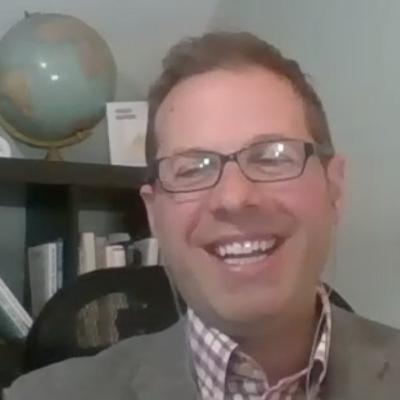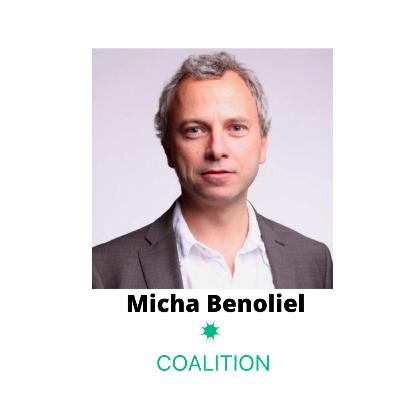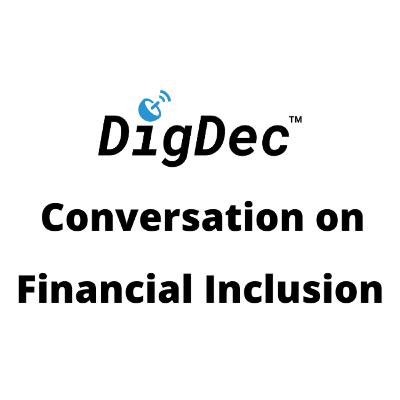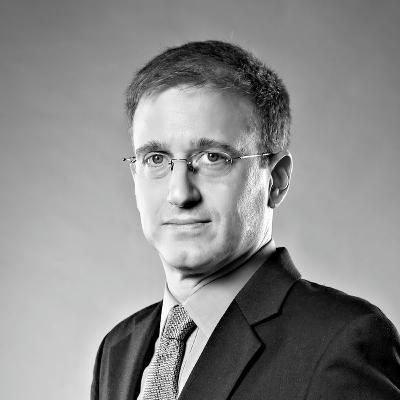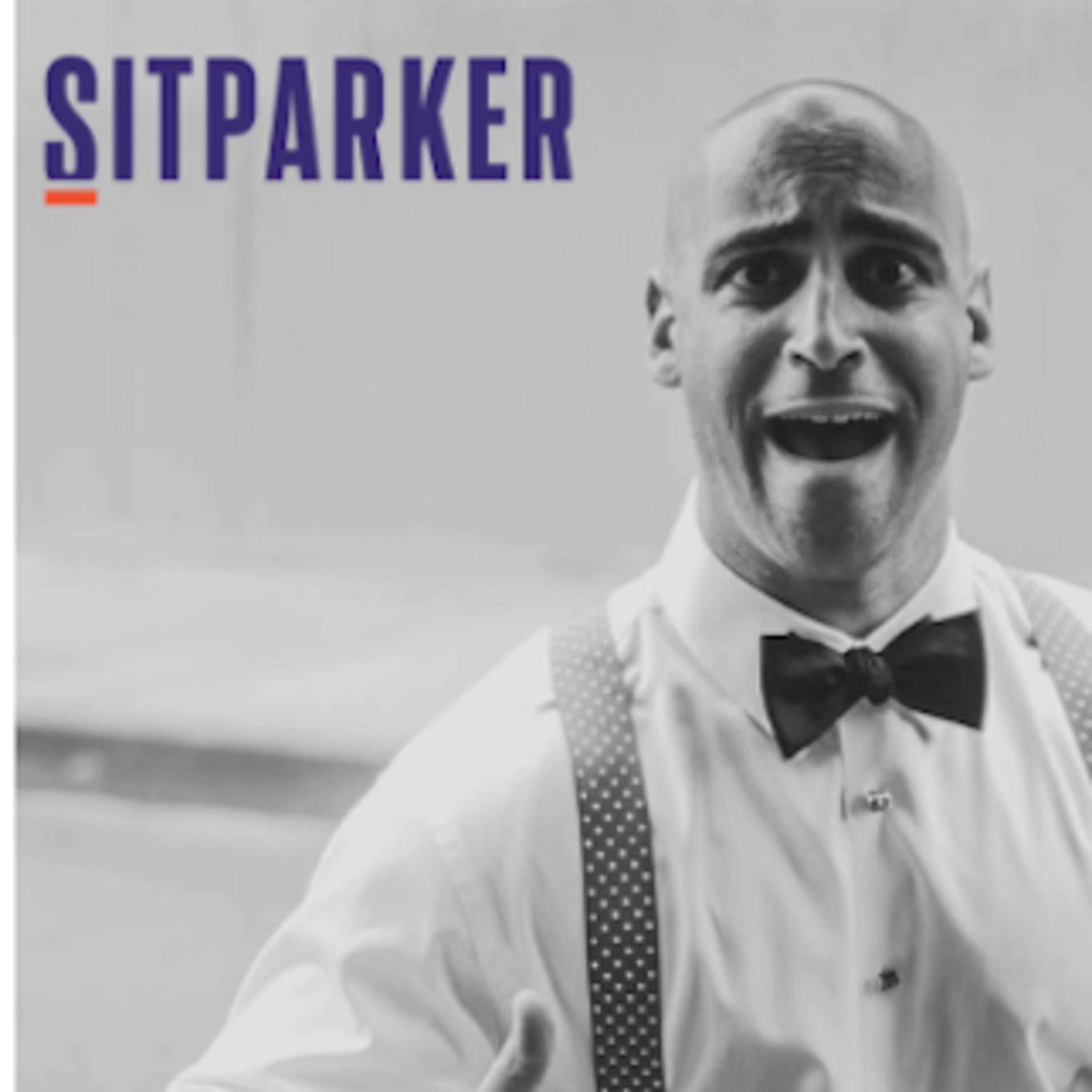Discover A Better Mousetrap
A Better Mousetrap

A Better Mousetrap
Author: A Better Mouse Trap
Subscribed: 0Played: 54Subscribe
Share
© A Better Mouse Trap
Description
A Better Mousetrap podcast finds the founders and leaders in New York City's startup and tech community. The host, Marcos Dinnerstein, brings out their insights, industry knowledge and their stories. The highs, lows, and in-betweens that shape us and make us who we are.
51 Episodes
Reverse
In today’s episode I speak with Mary J. Giuffra, a therapist with over 30 years of practice, working with individuals and couples. She has taught in universities in the U.S. and abroad, including tenured positions at New York University and the College of Mount Saint Vincent. Her unique approach distills the insights and wisdom she has acquired over years of study and working with people to help them live more fulfilled lives with themselves and with their partners. She recently published, 2 X 2 on the Ark: Five Secrets of a Great Relationship. You can find her book here.
This interview was done in the Fall of last year. For various reasons including a global pandemic and pure laziness, this has been gathering digital dust on my digital shelf. But David Ryan Polgar and the team at All Tech Is Human are doing important work so late or not, this is a good introduction to their world.
Since this interview, David Ryan Polar and All Tech Is Human have been doing significant work to advance the movement of Responsible Tech. They’ve created a job board for Responsible Tech, issued an extensive report, Improving Social Media: The People, Organizations and Ideas for a Better Tech Future, launched a Slack channel, and are building a University Responsible Tech Pathways Program.
If I were to sit down again with David, which I hope to do again in the future, I’d want to get his thoughts on
Google’s firing of two leaders of their AI ethics team
The January 6 insurgency and the role that social media played its planning and implementation
Law enforcement’s use of cell phone location tracking
and so much more that has happened since this interview. That will have to wait until the next time we can talk.
To learn more about David Ryan Polgar go to https://www.davidpolgar.com/ And for All Tech Is Human, go to https://alltechishuman.org/
Enjoy!
Nothing like a good pandemic to rapidly teach us new phrases. “flatten the curve”, “shelter in place”, “social distancing”, “asymptomatic”, “herd immunity” are just of few of the many terms we’re all getting to know and use. Dictionary.com has compiled a hefty list of coronavirus terms. Now you too can you can learn more of them or confirm you know them all. (don’t feel smug about that!)
Contact tracing is a term that will be increasingly important as we search for ways to safely resume social activities. I recently had a chance to speak with Micha Benoliel who co-founded the non-profit Coalition Network. Benoliel and his team have been working on decentralized, bluetooth-based networks for 10 years and in 2014 produced a mesh network phone messaging app, FireChat. This messaging app lets users communicate without an internet connection by connecting phone to phone. (that’s the decentralized part of it). Originally launched for Burning Man, it was quickly adopted by the protest movements in Taiwan and Hong Kong.
This same team, now working under the non-profit company, Coalition Network, quickly developed a ‘privacy-first’ contact tracing app, Coaltion. Listen to how Micha Benoliel explains how a privacy-by-design or privacy-first app works. We all need to understand contact tracing and how the inherent risks to privacy can be mitigated.
InfraTech encompasses the fields of both ‘hard’ and ‘soft’ infrastructure. Traditionally, we thought of infrastructure as roads, bridges, airports, power stations - i.e. physical things that are the underpinnings of a modern society. By contrast, ‘soft’ infrastructure includes education, healthcare and transportation.
How is the adoption of new technology in developing countries being used to leapfrog over prior ways of delivery services? This is at the heart of DigDec, a shortening of Digital Decolonization. Colonized by whom? By large multinational companies that dominate an industry or range of industries. One example is seen in countries that go directly to cell phones and never adopt a network of telephone lines.
Multinational companies and local companies are vying for market share as new technologies are developed and adopted. Listen to this brief intro to learn more about the factors that determine what companies will thrive over time. To learn more about the concept and implementation of DigDec, i.e. Digital Decolonization visit Prince Street Capital Partners.
How is FinTech being used in developing markets? Are the trends pointing towards incumbent players adopting digital strategies or are startups entering the consumer and business markets with services that will supplant the existing players?
And as these newer technologies are adopted, what mix of regulatory forces and market forces will determine the companies that end up on top? These and other questions are posed in this brief intro on FinTech in emerging markets.
InfraTech is a shortening or mashup of Infrastructure Technology. It covers physical infrastructure such as bridges, tunnels, energy tech, and airports. It also encompasses education, healthcare, and transportation. In this episode, David Halpert, founder of Prince Street Capital Management discusses what’s going on in emerging markets with respect to infrastructure in all its forms. Join us for insights on a world of business that many of us need to know more about.
Financial inclusion. What do people mean when they use that term? Is it a social movement or is it a business opportunity to address the needs of a vast market of people who have no bank accounts, credit, or access to eCommerce? The simple answer would be yes to being both a social movement and a business opportunity. Financial inclusion has been a hot topic in recent years, and social and technological forces are converging to make it a significant part of economies in emerging markets.
Once again, I had a chance to speak with David Halpert, founder of Prince Street Capital Management, to get his perspective on the meaning of financial inclusion. What it means to these economies, to people who are either, ‘unbanked’ or ‘under-banked’, and how these trends present an investment opportunity. And he contextualizes these trends as part of the larger DigDec, i.e. Digital Decolonization, trend being espoused by Prince Street Capital Management. This is another don’t-miss episode.
We continue our conversation with Prince Street Capital Management's founder, David Halpert. In this episode, we talk about trends in HealthTech in emerging markets where there are both significant opportunities as well as challenges. Where there is no firmly established system in place both new technologies and entire healthcare systems can take root and provide services at lower cost and with better outcomes. How do various developing countries meet their own countries' healthcare needs? Plug in and listen to this engrossing conversation to find out.
Prince Street Capital Management has a focus on new technologies in the Healthcare industry, among others, in developing nations. What is being done differently in these countries as compared to the so-called developed nations? Are some countries bypassing or 'leapfrogging' existing ways of providing healthcare? And what role do governments play in all of this? You'll find answers in this podcast and in our interview with Prince Street Capital Management's founder David Halpert.
Transcript
More and more of the world economy is going digital. Whether it's buying plane tickets or applying for credit card loans or looking up healthcare prescriptions, the world is shifting toward a more data-driven and more digital economy.
Today, US & Chinese companies account for 90% of tech market cap. But there remains a huge question – will the rollout of digital services across the developing world be a “colonial” economy run by global multinationals from the US and China, or will it be more local?
We think it is likely to be increasingly less centralized and more distributed. Though we still believe that US and Chinese technology companies will benefit from the digitization of emerging and frontier markets, we think local companies will benefit too.
In daily headlines, we see momentum building for “digital economic nationalism” where local entrepreneurs and governments want greater control over their digital assets.
We define this concept as Digital Decolonization, or DigDec – a process by which entrepreneurs, companies, governments and consumers in developing markets reclaim their digital economies and ecosystems from global multinationals, and develop indigenous solutions for local problems.
We believe this is a global movement with ramifications for technology, for e-commerce, for financial services, for healthcare, for electric power, for infrastructure and for so many other sectors.
Homegrown champions, with help from regulators and political leaders, are helping to build value and wealth in their societies. Homegrown champions are improving local customer experience by creating products and services that appeal to local tastes and customs. And homegrown champions are leapfrogging multinationals by adapting and improving on business models pioneered in the developed world.
We believe DigDec is one of the most important developments in globalization at this point in history. Find out more by listening to David Halpert, the founder of Prince Street Capital Management and a champion of the DigDec thesis, on A Better Mousetrap podcast on Spotify.
Digital Decolonization is a term that will reshape how we think of businesses in, and investing in, emerging markets such as in Africa, Latin America, the Middle East, and Southeast Asia. And this is not a matter of semantics - of po-tay-to / po-tah-to.
How an idea is framed is important when it comes to gaining wider acceptance. ‘Pro-choice vs. Pro-life’ or ‘freedom fighters vs. revolutionaries’. These are linguistic framings. And they represent conscious efforts to define a worldview.
Join me in my talk with David Halpert, for an in-depth look at his investment company, Prince Street Capital Management. This is very much about Digital Decolonization and how it will affect people in a world that is now dominated by FAANG-BAT, i.e. Facebook, Apple, Amazon, Netflix, Google, Baidu, Alibaba, and Tencent. David knows this world intimately and offers insights gleaned from years of investing in emerging markets. This is a good one. Have a listen.
A Russian, a Columbian, and a Korean walked into a bar. No, this isn't the latest joke that seeks to elevate one group at the expense of others. This is a story of three immigrants elevating the U.S. They do this by joining forces to apply skills, ambition, and grit to create an investment company that will, in turn, elevate the companies they invest in. This investment company is the newly formed 13Ventures, the brainchild of Katya Dorozhkina, and Diego Berrio. I leave it to you, the astute reader, to guess who is Russian and who is Columbian.
Today's podcast shines a spotlight on Wonchang Terry Choi, who, as a teen, came from Korea to the U.S. to study. With limited English skills and a strong desire to be special, he excelled in High School and is a recent graduate of Fordham's Gabelli School of Business. And now he works as a Junior Partner, Investment Principal at 13Ventures. This is the beginning of his professional journey so his story has just begun. But his intelligence, curiosity, drive, and love of finance will make anyone want to spend time listening to his story so far. Pull up a chair. Click play.
For the best in founder opportunities, tech events, and news, subscribe to A Better Mousetrap newsletter.
Can you make artisanal, one-of-a-kind pieces of jewelry and also scale the production of those works? Does that sound like a contradiction?
That's the question confronting Lisa Linhardt and her team at Linhaus, a tech-enabled operation for jewelry, design, and craft. The melding of old and new technology will forge an alloy perhaps never before seen in the world of high-end jewelry. Speaking with Lisa, I'm reminded of the work of Nathan Myhrvold in the world of cooking.
CAD, RHINO, laser cutting, 3D printing are all part of the toolset used at Linhaus. Listen to how this will all work to create unique pieces that employ and honor traditional craft with expanding what's possible with new technology. Listen now. Then visit the new store at 156 First Avenue in New York City.
Last year I interviewed the companies that were visiting the US as part of FD Global Connections fdglobal.com.au program and this year I was lucky enough to connect with the latest batch of companies. They don’t disappoint. Based in either the UK or Australia, each is exploring entering the US market to expand its customer base, forge new partnerships and grow their company. See below for more.
Starts: 0:40
Trena Blair, Founder & CEO of FD Global Connections, a Sydney, Australia based consultancy that prepares and launches Australian and UK companies into the US market and US companies into the Australian market.
Starts: 5:13
Pascale Helyar-Moray and Emily Hollingum, Super-Rewards: Australia
Super Rewards offers a unique customer experience whereby customers shop online, earn cash rewards, which are paid into their pension account. This Fintech targets women and solving the problem of insufficient funds for retirement. They've recently launched in Australia and with organizations such as Apple, ETSY, Emirates already signed as partners, they are now entering the USA market. Their focus will be on Retailers, Retirement Fund Managers and affiliate organizations and introductions to investors for a 2020 fundraise.
Starts: 14:35
Roger Manu, Cloudcase: Australia
Cloudcase Software Solutions (CSS) is a software and services company using contemporary design to automate simple and highly complex business processes for virtually any product and industry sector. Cloudcase does this across any channel and can be configured, launched and maintained by customers or third parties. They started to scale into the USA in early 2019 and are initially targeting banks, insurance companies, card processing companies.
Starts: 23:37
Derek Stewart, PAYSME: UK,
Paysme delivers increased mobile engagement by championing small business owners in their local communities. Their suite of financial services will help shape the future of mobile payments, commerce & enterprise.
Starts: 33:05
Oliver Calma, BCRemit: UK
BCRemit is a disruptive online money transfer platform that provides the lowest transfer fees in the market. Their first market has been migrant workers in Europe. New to the US market and BCRemit will focus on the Asian migration population in the USA, at first in New York, California, Florida, and Illinois.
When a startup is created, a record is created that shows who has a stake in that company - i.e. equity. This is called a Capitalization or Cap Table. Over time,investments are made in that company, employees are offered stock options and other events change the Cap Table. Managing equity and stock options and keeping a Cap Table current has been a laborious and costly task to manage. To address this, startups have been forming to make this task easier, more transparent and cheaper.
Enter EquityToken. This startup not only digitizes the entire process but also converts that equity into a crypto-token so that transferring the value of that equity can be done easily by a smart contract on a blockchain. Listen to Kevin Siskar explain what lead up to the formation of EquityToken and then take a deep dive into the value of their solution.
You should check out Kevin's Podcast, Ambition Today, for another perspective on the startup scene.
To keep up on tech events and founder opportunities in New York City the best place to start is with my newsletter. So subscribe to A Better Mousetrap right now and start getting it this week!
Do you know what a micro-influencer is? Regardless of what you think you know, you'll learn much more when you listen to Ismael El-Qudsi talk about the immense return of investment (ROI) that using micro-influencers can bring and how SocialPubli lets advertisers scale this potent tool in one market or across multiple markets in different countries. Listen now.
Join me in this thoroughly enjoyable conversation with Dan Meth, Founder of SitParker, a platform for restaurants, bars, and other venues to manage events more easily and realize more profit per event. About halfway into the interview Dan tells a great story about pitching his first investor. This one made me laugh out loud a couple of times. Don’t miss that.
One more thing. I left in a post show moment of panic that you might enjoy.
Benjamin Franklin said something like, "There are only two things certain in life, death and taxes" While perhaps a bit fatalistic, it has a ring of truth to it.
My recent conversation with TaxMap founder, F. Elusio Zafar Alcalde, tells me that cryptocurrencies are growing up and accepting at least one of life's certainties, taxes. What might seem like a dry topic is anything but when handled by Elusio. Join me in digging into this topic that all real businesses, and people not living off the grid, must contend with. An unexpected gem: Elusio's enthusiasm for creating a business in the U.S. and specifically in New York City. Sometimes it takes a fresh set of eyes to appreciate what's all around you. Here's a bit of what our import from the U.K., Elusio, had to say,
"NYC - the energy of the city - the serendipity of the city as well is amazing. There’s nothing like it anywhere else around the world. You can meet anybody and share an idea, and build something… "
And from the looks and sound of things, Elusio Zafar Alcalde is doing just that.
Before his senior year at high school started, Josh Goldenberg had taken all the math courses offered at his high school. That year was spent finding and taking other courses to occupy his curiosity and continuing to run cross-country. Staying with his core interests, in college Josh studied both computer science and economics.
Now, after stints at the NYC Department of Education, Thomson Reuters, EisnerAmper and other companies Josh holds the position of product manager at Clarifai.
When you hear his enthusiasm for computer vision, machine learning and software, you'll find they are infectious. Drop in to this podcast to hear the range of fascinating applications that are being worked on at Clarifai and in this field.
Don't miss more of these as well as the latest news, events, and opportunities in the NYC tech scene. Subscribe to A Better Mousetrap newsletter today!
In this episode, Peter Borovykh, founder of RoninAI takes us through how his company lets cryptocurrency owners trade for profit. Hear how the platform evolved to where it is today and where his customers trade. So far, the company hasn't taken any investment money and wants to hold true to their vision for the company. Part of that vision stems from a desire to let traders retain control their own assets. It will be good to see how this develops.
Learn more about blockchain
Blockchain Applications in Finance, by Peter Borovykh: https://www.amazon.com/Blockchain-Applications-Finance-Peter-Borovykh-ebook/dp/B07CJLYJWW
Bitcoin White Paper: https://bitcoin.org/bitcoin.pdf
Bitcoin and Cryptocurrency Technologies: https://www.lopp.net/pdf/princeton_bitcoin_book.pdf
Don't miss out on tech events, founder opportunities, and more great interviews. Subscribe to A Better Mousetrap



